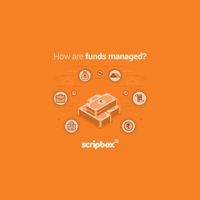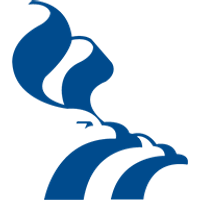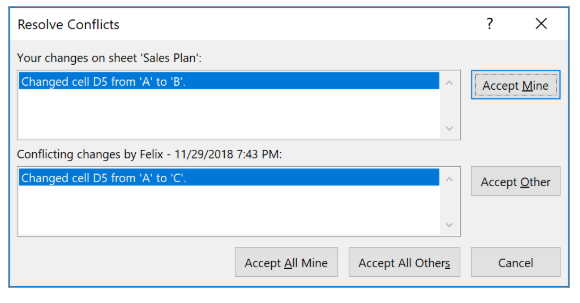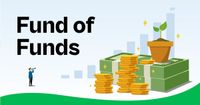Explore web search results related to this domain and discover relevant information.
An investment fund is a way of investing money alongside other investors in order to benefit from the inherent advantages of working as part of a group such as reducing the risks of the investment by a significant percentage. These advantages include an ability to: hire professional investment ...
An investment fund is a way of investing money alongside other investors in order to benefit from the inherent advantages of working as part of a group such as reducing the risks of the investment by a significant percentage. These advantages include an ability to: hire professional investment ...Terminology varies with country but investment funds are often referred to as investment pools, collective investment vehicles, collective investment schemes, managed funds, or simply funds. The regulatory term is undertaking for collective investment in transferable securities, or short collective investment undertaking (cf.Investment funds are promoted with a wide range of investment aims either targeting specific geographic regions (e.g., emerging markets or Europe) or specified industry sectors (e.g., technology). Depending on the country there is normally a bias towards the domestic market due to familiarity, and the lack of currency risk.The first (recorded) professionally managed investment funds or collective investment schemes, such as mutual funds, were established in the Dutch Republic. Amsterdam-based businessman Abraham van Ketwich (also known as Adriaan van Ketwich) is often credited as the originator of the world's first mutual fund.The Undertakings for Collective Investment in Transferable Securities Directives 85/611/EEC, as amended by 2001/107/EC and 2001/108/EC (typically known as UCITS for short) created an EU-wide structure, so that funds fulfilling its basic regulations could be marketed in any member state. The basic aim of collective investment scheme regulation is that the financial "products" that are sold to the public are sufficiently transparent, with full disclosure about the nature of the terms.

Different types of funds fulfil other purposes. It is good to have an idea & better understanding of how the funds work, the different types of funds, and which one will be beneficial to you. What is Fund? A fund is an accumulation of money reserved for an intended purpose.
A fund is a collection of different people's money, collected & managed by high market professionals. They accumulated and invested the money in various stocks, bonds, and other securities to provide better returns. The money earned in the form of returns is distributed among investors in proportion to the number of units they own.Different types of funds fulfil other purposes. It is good to have an idea & better understanding of how the funds work, the different types of funds, and which one will be beneficial to you. What is Fund? A fund is an accumulation of money reserved for an intended purpose.Different types of Fund Emergency funds: Individuals build personal savings instruments to cover difficult financial times, such as job loss, extended illness, or cover large expenses. The general rule is to have at least three months' worth of net income in an emergency fund.Retirement funds provide monthly income or pensions to retirees. Some types of funds in the investment industry include: Mutual funds: This type of investment fund is managed by experts who receive from individual investors and then invest that money in stocks, bonds, and different assets.

: to convert into a debt that is payable either at a distant date or at no definite date and that bears a fixed interest ... Noun The fund was established to aid the poor. All her funds were in a checking account. His funds were getting lower as he continued to look for a job.
: to convert into a debt that is payable either at a distant date or at no definite date and that bears a fixed interest ... Noun The fund was established to aid the poor. All her funds were in a checking account. His funds were getting lower as he continued to look for a job.2025 Lastly, the DoD funds and manages research in fields like aerospace, cybersecurity, artificial intelligence, and medical science. —Hannah Parry, MSNBC Newsweek, 3 Sep. 2025 · Verb Ashley Miznazi is a climate change reporter for the Miami Herald funded by the Lynn and Louis Wolfson II Family Foundation and MSC Cruises.: a mutual fund that invests to reflect the composition of the market as a whole by matching its investments to a stock index ... : an investment company that invests its shareholders' money in a usually diversified group of securities of other companies ... : an investment company that buys up bankrupt or insolvent companies with the goal of reorganizing them so they can be profitably resold as going concerns ... : to convert into a debt that is payable either at a distant date or at no definite date and that bears a fixed interest: a fund that is established by collective bargaining to provide health and welfare benefits to employees and that is jointly administered by representatives of labor and management

Learn what a fund is, how it works, and its types. Explore how funds help businesses grow and manage risks effectively.
A fund is a pool of capital collected from multiple investors and managed by professionals. These experts use their knowledge and experience to invest in various financial assets such as stocks, bonds, or other securities. This helps businesses and individuals spread risk and grow their money.The involvement of professionals in managing funds provides a sense of reassurance and confidence as they ensure access to larger investments, professional management, and flexible strategies, helping businesses get the money they need for growth and manage risks more efficiently. Money is any currency or medium of exchange used to buy goods and services, pay debts, or store value.It is a general resource that individuals and businesses use in everyday transactions. On the other hand, a fund is a collection of money set aside for a specific purpose, often pooled from multiple investors.Typically, funds are managed by professional fund managers responsible for making investment decisions that align with the company’s goals and risk tolerance. These managers analyse markets, assess risks, and make strategic decisions that ensure the fund is used effectively and generates desirable returns.
The https:// ensures that you are connecting to the official website and that any information you provide is encrypted and transmitted securely. ... Why should I invest in the I Fund? Investment in the I Fund offers the opportunity to experience gains from equity ownership of non-U.S.
Because it represents the stocks of large, medium, and small companies in more than 40 developed and emerging market countries (excluding the U.S.), it is an excellent way to diversify the stock portion of your TSP allocation. Am I ok with market and inflation risk? I Fund returns move up and down with the returns in the MSCI ACWI IMI ex USA ex China ex Hong Kong Index (market risk).By law, the I Fund must be invested in a portfolio designed to track the performance of an index of stocks representing international stock markets outside of the United States. The Federal Retirement Thrift Investment Board has chosen as its benchmark the MSCI ACWI IMI ex USA ex China ex Hong Kong Index. As of December 31, 2024, the index included over 5,000 stocks representing 44 countries (21 developed markets and 23 emerging markets). It is not efficient for the I Fund to hold every stock in the index because some of those stocks have small market capitalizations and low trading volumes.The FRTIB’s Executive Director currently allocates the selection, purchase, investment, and management of assets contained in the I Fund to BlackRock Institutional Trust Company, N.A., and State Street Global Advisors Trust Company. The performance of the I Fund is evaluated on the basis of how closely its returns match those of the MSCI ACWI IMI ex USA ex China ex Hong Kong Index.The I Fund’s investment objective is to match the performance of the MSCI ACWI IMI ex USA ex China ex Hong Kong Index.


What is an investment fund? A financial product that pools money from multiple investors to purchase a portfolio of securities. Read on to learn more about it.
What is an investment fund? A financial product that pools money from multiple investors to purchase a portfolio of securities. Read on to learn more about it. 82.78% of investors lose money.This is usually done with the goal of earning higher returns than those offered by traditional investments. The investment fund definition is that it is a pool of capital that a number of individual investors pay into, which is used to collectively invest in different securities.Each investor owns their individual shares in the fund. However, they don’t have any influence on where the money in the fund is invested. The portfolio is managed by a professional manager who is responsible for making investment decisions based on the fund's objectives and strategy.An investment fund is a financial product that pools money from multiple investors to buy a diversified portfolio of assets, such as stocks, bonds, real estate, and commodities. Each investor owns a portion of the fund's shares.

Investing in a fund of funds provides access to the expertise and resources of multiple professional investment managers. This can potentially lead to better investment decisions, improved risk management, and higher returns over the long term. Diversification is a key benefit of investing ...
Investing in a fund of funds provides access to the expertise and resources of multiple professional investment managers. This can potentially lead to better investment decisions, improved risk management, and higher returns over the long term. Diversification is a key benefit of investing in a fund of funds, as it can help reduce the overall risk of the investment portfolio.A fund of funds is an investment strategy that involves investing in a portfolio of different funds instead of individual securities, providing investors with diversification across various fund managers, investment strategies, and asset classes.They also employ quantitative and qualitative analysis to construct a diversified portfolio that meets the fund's investment objectives and risk profile. ... True Tamplin is a published author, public speaker, CEO of UpDigital, and founder of Finance Strategists.Ask a question about your financial situation providing as much detail as possible. Your information is kept secure and not shared unless you specify. ... Take self-paced courses to master the fundamentals of finance and connect with like-minded individuals.

Buying a mutual fund is a bit like hiring someone to fix the brakes on your car. Sure, you could do the research, buy the tools and fix the car yourself (and many people do), but often it's not only easier but also safer to let an expert handle the problem.
By purchasing a mutual fund that invests in other mutual funds, they get the added protection of multiple money managers and much more diversity than one fund would give them. A fund of funds (FOF) is an investment product made up of various mutual funds—basically, a mutual fund for mutual funds.Because each mutual fund has a minimum investment threshold to buy in—usually $1,000—the individual may not be able to afford to meet the minimums for several mutual funds at once. Buying a mutual fund that invests in other funds means the individual does not have to meet that minimum. The emergence of FOFs is being pushed by demand from investors to have more safety while trying to keep up with or beat the market.An investor who purchases an FOF must pay two levels of fees. Just like an individual fund, an FOF may charge management fees and a performance fee, although the performance fees are typically lower than individual mutual funds to reflect the fact that most of the management is delegated to the sub-funds themselves.In addition to searching for a disciplinary history within the securities industry, this work can include researching the backgrounds, verifying the credentials and checking the references provided by a fund manager of any individual fund that is being considered as an investment.

A Giving Fund is your personal donor-advised fund (DAF). It’s a simple, powerful way to plan and manage your charitable giving—whether you want to support nonprofits, schools, or crisis relief efforts. You can give to causes that matter to you, all while keeping your giving organized and ...
A Giving Fund is your personal donor-advised fund (DAF). It’s a simple, powerful way to plan and manage your charitable giving—whether you want to support nonprofits, schools, or crisis relief efforts. You can give to causes that matter to you, all while keeping your giving organized and growing over time.“What I like about Giving Funds is I can sit down at 1:00 in the morning and say: ‘Hey, this sounds like a good idea. Let me take care of this.’ Boom.Introducing GoFundMe Giving Fund, the Donor Advised Fund backed by the world leader in giving. A new way to make a difference and donate to nonprofits today.No more sorting through receipts from every donation you made all year! Your Giving Fund tracks your contributions and donations throughout the year, so you can download a single, simple tax receipt anytime you need it.

A fund is formed by pooling money from multiple investors. The fund is a pool of money set aside for a specific purpose. Professionals manage funds and invest the money in financial securities. A fund manager manages the fund and uses multiple strategies to invest the money effectively.
Funds are collective investments from multiple investors. The money collected is invested across various assets spreading the risk. A fund manager is a person who manages the fund’s money. Fund managers buy and sell securities on behalf of all the investors.Therefore, returns from these funds are related to the stock market. Hence equity mutual funds have a higher risk associated with them when compared to other types. However, these have higher growth potential. Also, equity funds objective is capital appreciation in the long term.Debt Mutual Funds: Debt Mutual Funds invest in fixed income instruments or debt securities. These securities are State, and Central government-issued instruments, money market securities, corporate bonds, debentures, and commercial papers. The risk with these types of funds is lesser in comparison to equity funds.However, it is always best to take the advice of professionals to understand what types of investment options are available and what best suits them. A professional will also help an investor in understanding how much risk they can absorb. Here is a list of best mutual funds as per recent returns and fund performance.
Finance Fund is an equal opportunity organization and does not and shall not discriminate on the basis of race, color, religion, gender, gender expression, age, national origin, disability, marital status, sexual orientation, or military status, in any of its activities or operations.
Finance Fund develops real estate, including affordable residential units as well as commercial and mixed-use housing located in low- and moderate-income communities. Additional real estate services offered include planning and development, technical assistance, financial modeling, and construction management.To date, Finance Fund and its subsidiaries have invested more than $491.5 million into a wide range of projects throughout Ohio’s underserved communities involving economic development, community facilities, manufacturing and industrial facilities, healthy food retail and distribution, and affordable housing, leveraging more than $2 billion of additional investment.Finance Fund has accomplished this total investment by awarding 3,057 grants to community development corporations and other community-based organizations and by making over 106 loans and equity equivalent products to for-profit businesses and non-profit organizations.Finance Fund’s investments have created important community impacts including: the creation and/or retention of 21,624 permanent jobs, and the creation of 13,797 construction jobs; the construction and development of 4,996,254 square feet of manufacturing and industrial space, 413,169 square feet of healthy food retail space, and 10,759,722 square feet of community facilities space serving 74,438 students and 236,474 patients; and creating 18,507 total housing units.

Morningstar is an investment research company offering mutual fund, ETF, and stock analysis, ratings, and data, and portfolio tools. Discover actionable insights today.
Some common types of fund vehicles are open-end mutual funds; exchange-traded funds; closed-end funds; collective investment trusts; separately managed accounts; variable annuities; and hedge funds. ... Transparency is our policy.Funds are collections of individual investments.Popular examples include mutual funds, exchange-traded funds or ETFs, and closed-end funds.Funds are pooled investment products.
Private investment funds are pooled investment vehicles typically run by professional fund managers. “Fund management” is a broad term for the years-long process of operating and administering a fund throughout the fund’s lifecycle, from raising capital to determining an exit strategy.
The fund manager (the management company) formally is the legal entity responsible for making decisions on behalf of the private fund. But the fund manager usually “outsources” support, research, and analysis of investment decisions to the management company, a separate legal entity.Fund managers often spend many years building and nurturing relationships with both current and potential LPs. Raising capital from these LPs is the lifeblood of any private fund manager: Without capital, it’s impossible to make new investments.Many aspects of fund management require creative and versatile thinking, and value creation is no exception: Managers must assess each company on its own merits, decide on the best course forward, and then execute their plan.After owning a portfolio company for some period of time—often between three and seven years for private equity—fund managers typically look for a way to exit their investment and return capital back to their LPs. In PE, the most common exit strategy is M&A, where a fund manager sells a portfolio company to a new buyer, either a corporation or another investment firm.


The https:// ensures that you are connecting to the official website and that any information you provide is encrypted and transmitted securely. ... Why should I invest in the I Fund? Investment in the I Fund offers the opportunity to experience gains from equity ownership of non-U.S.
Because it represents the stocks of large, medium, and small companies in more than 40 developed and emerging market countries (excluding the U.S.), it is an excellent way to diversify the stock portion of your TSP allocation. Am I ok with market and inflation risk? I Fund returns move up and down with the returns in the MSCI ACWI IMI ex USA ex China ex Hong Kong Index (market risk).By law, the I Fund must be invested in a portfolio designed to track the performance of an index of stocks representing international stock markets outside of the United States. The Federal Retirement Thrift Investment Board has chosen as its benchmark the MSCI ACWI IMI ex USA ex China ex Hong Kong Index. As of December 31, 2024, the index included over 5,000 stocks representing 44 countries (21 developed markets and 23 emerging markets). It is not efficient for the I Fund to hold every stock in the index because some of those stocks have small market capitalizations and low trading volumes.The FRTIB’s Executive Director currently allocates the selection, purchase, investment, and management of assets contained in the I Fund to BlackRock Institutional Trust Company, N.A., and State Street Global Advisors Trust Company. The performance of the I Fund is evaluated on the basis of how closely its returns match those of the MSCI ACWI IMI ex USA ex China ex Hong Kong Index.The I Fund’s investment objective is to match the performance of the MSCI ACWI IMI ex USA ex China ex Hong Kong Index.
Explore the basics of a Fund of Funds, how it operates, and its role in investment diversification with Allvue Systems.
For investors looking for even more diversification, there exists another investment vehicle known as a fund of funds (FoF). This instrument takes things further by investing in a portfolio composed entirely of other inherently diversified funds. This is just the tip of the iceberg however; FoFs offer a multitude of other benefits for investors.A fund of funds, also sometimes called a multi-manager fund, is an investment vehicle that pools capital from multiple investors and then invests it in a portfolio of other investment funds rather than directly in individual stocks, bonds, or other securities.Fund of fund manager (General Partner): This is an investment manager or management firm that operates and administers the fund. They are responsible for selecting underlying funds, managing the entire portfolio, and ensuring it adheres to its investment strategy and goals.Most FOFs also have a governance structure that may include a board of directors and an investment committee. These entities oversee the fund and ensure its operations align with investors’ best interests. In the United States, the Securities and Exchange Commission (SEC) is the primary regulator of FoFs.

This financial institution sets up an “investment fund” (also known as a mutual fund) and then starts searching for investors who might be interested in participating in the fund by paying money into it. An investment fund is therefore nothing other than an “undertaking for collective ...
This financial institution sets up an “investment fund” (also known as a mutual fund) and then starts searching for investors who might be interested in participating in the fund by paying money into it. An investment fund is therefore nothing other than an “undertaking for collective investment” (UCI).Any investor interested in investing in Japanese equities can put money into this fund. In return he will receive shares or units in the fund representing his payment. The money collected by the fund is managed by its team of experts who buy and sell Japanese shares on behalf of the fund and manage the portfolio of shares acquired.Finally, the fund buys back its own shares or units from investors who wish to withdraw their savings and exit the fund. There is a wide variety of investment funds on the market. In principle, an investment fund may invest not only in equities but also in other securities, real estate, precious metals, art, noble wines …An investment fund, also known as a collective investment undertaking (UCI), is a financial organisation that collects savings from several investors.
Michael Rosenston is a fact-checker and researcher with expertise in business, finance, and insurance. ... A fund is a pool of money that is allocated for a specific purpose.
Michael Rosenston is a fact-checker and researcher with expertise in business, finance, and insurance. ... A fund is a pool of money that is allocated for a specific purpose.Examples include mutual funds, which gather money from numerous investors and invest it in a diversified portfolio of assets, and hedge funds, which invest the assets of high-net-worth individuals (HNWIs) and institutions in a way that is designed to earn above-market returns.Emergency funds are personal savings vehicles created by individuals used to cover periods of financial hardship, such as job loss, prolonged illness, or a major expense. The rule of thumb is to create an emergency fund that contains at least three months' worth of net income.Government bond funds are for investors looking to put their money away in low-risk investments through Treasury securities, such as Treasury bonds, or agency-issued debt, such as securities issued by Fannie Mae. Both alternatives are backed by the U.S.
:max_bytes(150000):strip_icc()/fund.asp-FINAL-1-993839a2f1c543659e95225e69a022de.png)
A fund is cash saved or collected for a specified purpose. In investing, funds — such as mutual funds and ETFs — pool money from investors to buy assets like stocks and bonds.
This may influence which products we review and write about (and where those products appear on the site), but it in no way affects our recommendations or advice, which are grounded in thousands of hours of research. Our partners cannot pay us to guarantee favorable reviews of their products or services. Here is a list of our partners. Learn more about what investment funds are, how they work, and different types, such as mutual funds and index funds.Arielle has appeared on the "Today" show, NBC News and ABC's "World News Tonight," and has been quoted in national publications including The New York Times, MarketWatch and Bloomberg News. She is based in Charlottesville, Virginia. ... In general, a fund refers to cash saved or collected for a specified purpose, often professionally managed with the goal of growing in value over time.Liquidity. Fund investors can typically sell their shares at any time. Instant diversification. Any investment in a single company’s stock is inherently risky. Funds reduce that risk as they often invest in a wide variety of companies, frequently in different industries.Opening a brokerage account is the first step to begin investing. A brokerage account is typically used to build future financial security or invest for long-term goals. ... There are a lot of ways to invest money — high-yield savings accounts, CDs, bonds, funds, stocks and gold are all options.


Fund of Funds (FoF) or super fund is a type of mutual fund that offers you the convenience and benefits of investing in multiple funds through a single investment. Fund of funds means a type of mutual fund that invests in other mutual funds.
An ETF, or exchange-traded fund, is a marketable security that invests in the basket of investment instruments replicating a broader market index such as NIFTY 50 or BSE SENSEX. ETF-based FOFs invest in the basket of ETFs. This means when you invest in this type of fund, your money gets invested in multiple ETFs.Investors can invest in gold by buying units of gold ETFs. These gold ETFs invest in 99.5% purity gold. Some investors may not invest in Gold ETFs for not having a Demat account. This is where Gold FOFs come into the picture. Gold fund of funds means investing in gold ETFs.For example, ICICI Prudential Regular Gold Savings Fund (FOF) invests in ICICI Prudential Gold ETF. Now, let’s look at some of the primary advantages of FOFs. When it comes to managing your investment portfolio, rebalancing is critical. Rebalancing your portfolio may require that you sell certain investments and buy others.FOFs invest in multiple mutual funds, whether domestic or international funds. As a result, FOF investors get the advantage of investing in a portfolio that is managed by different fund managers and their research teams.
A fund is a way to gain exposure to a group of investments and help reduce your risk.
It is a violation of law in some juristictions to falsely identify yourself in an email. All information you provide will be used solely for the purpose of sending the email on your behalf. The subject line of the email you send will be “Fidelity.com”. ... Thanks for you sent email. ... Get easy exposure to a mix of assets with funds.Even if you've never invested a dollar before, you're probably familiar with the concept: You might have a jar where you stash a rainy-day fund or a separate savings account where you're building a fund to replace your roof or upgrade your computer. What's key in any case is that the dollars you save have a clear purpose.Many traditional mutual funds are actively managed, meaning professional portfolio managers research and carefully select all of the investments and may adjust fund holdings in response to real-time trends or events. Some, however, are managed passively: A portfolio manager simply picks investments based on what is tracked in a benchmark index, such as the S&P 500®,1 a grouping of 500 of the biggest companies in America.Each lets you buy shares that provide exposure to a diversified mix of primarily stocks and bonds. Like traditional mutual funds, ETFs can be actively or passively managed. One of the differences is that unlike traditional mutual funds, ETFs trade throughout the day like stocks.






:max_bytes(150000):strip_icc()/fund.asp-FINAL-1-993839a2f1c543659e95225e69a022de.png)

